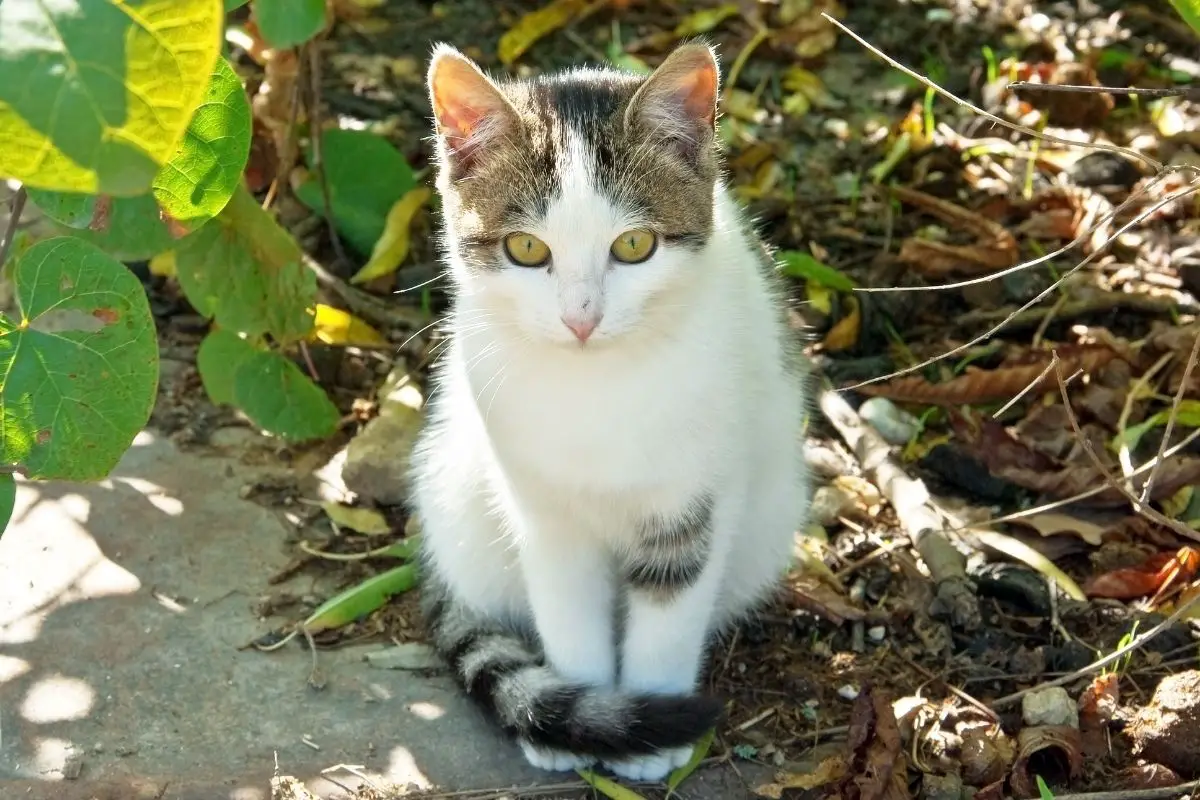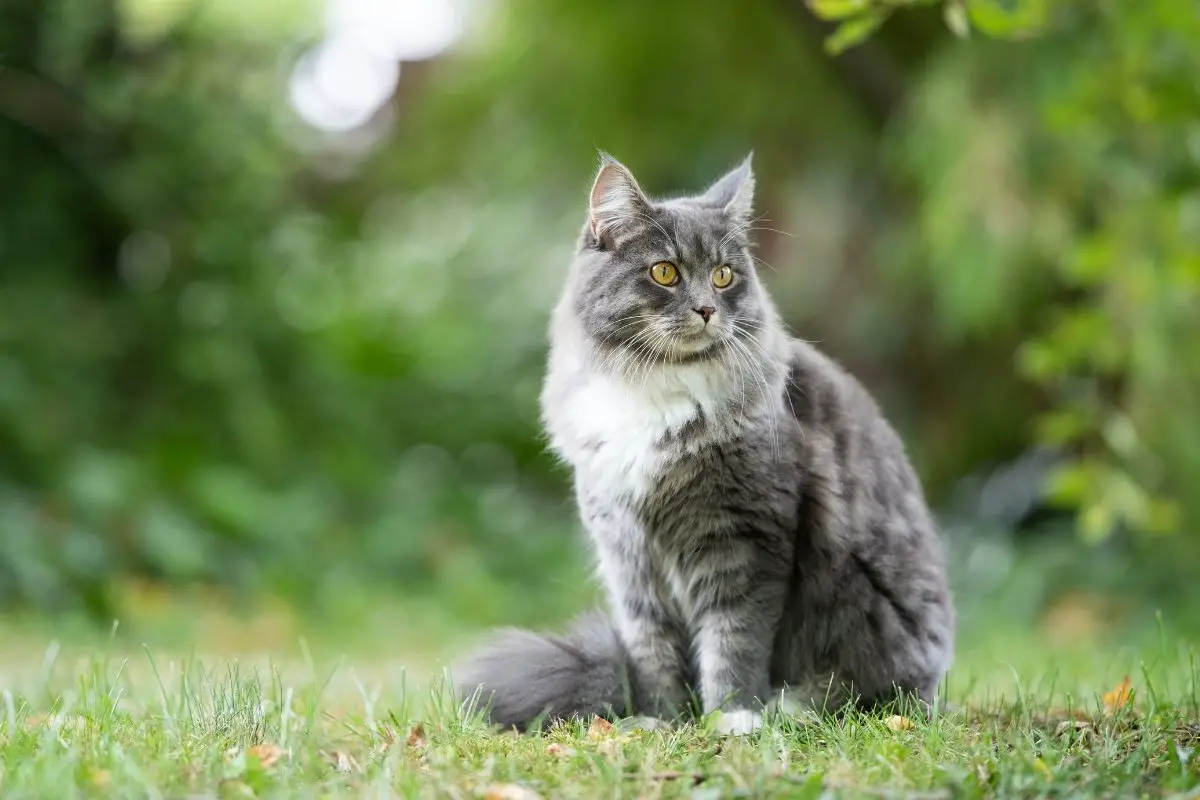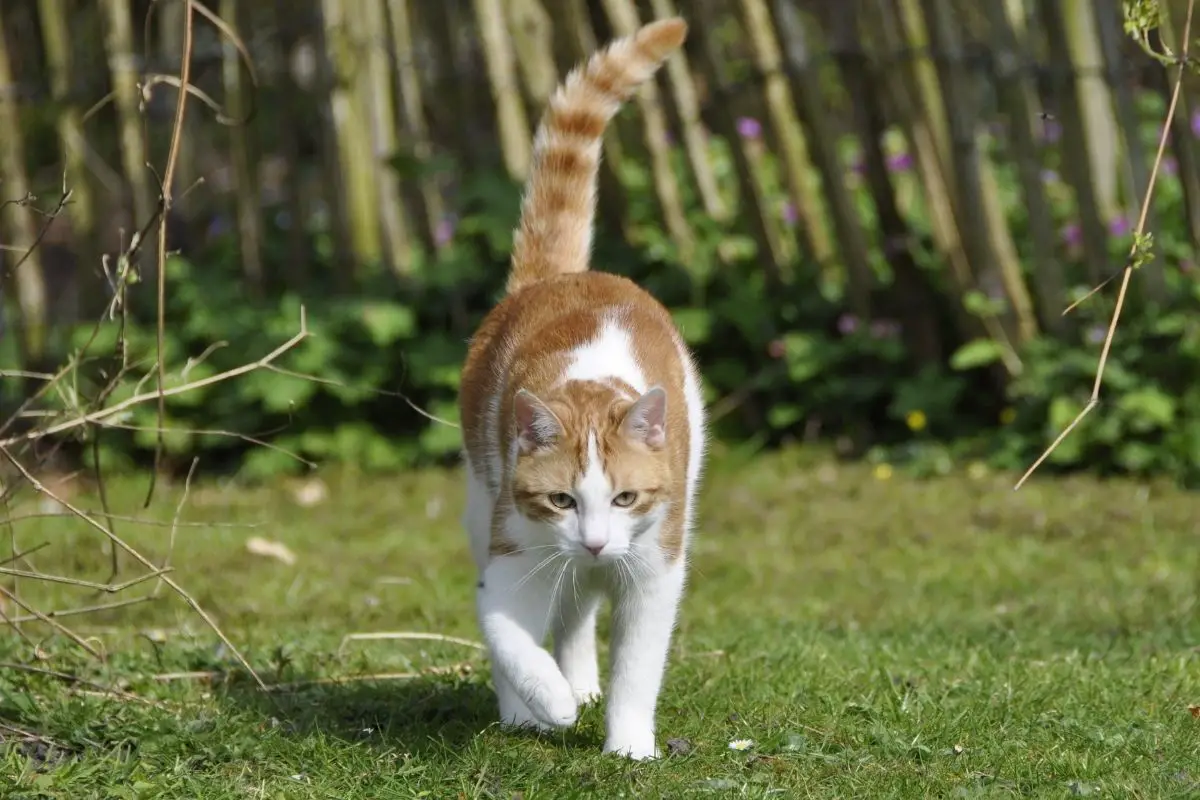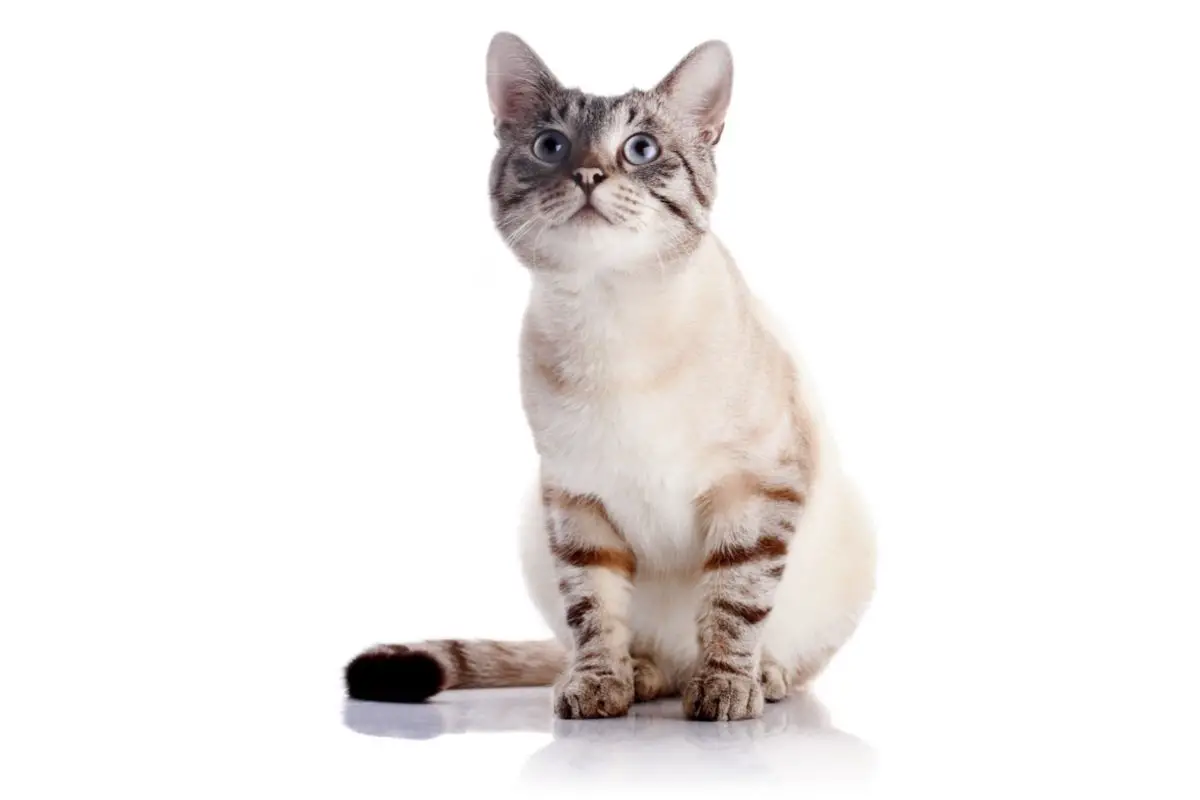Peeing frequently is a sign of a healthy cat.
However, if your cat is struggling to urinate, you might be wondering: How Long Can Cats Hold Their Pee?
In this article, I will discuss how long a cat can hold their pee, and discuss potential reasons why they might not be able to go.
Let’s get started.
Contents
- 1 How Long Can Cats Hold Their Pee?
- 2 How Long Can A Cat Go Without Urinating Before It Becomes A Problem?
- 3 How Many Times Should Your Cat Urinate In A Day?
- 4 Why Isn’t Your Cat Urinating?
- 5 How Often Should A Healthy Cat Be Peeing In A Day?
- 6 Can A Cat Not Peeing Be Fatal?
- 7 How Is Urinary Obstruction Treated In Cats?
- 8 Should You Be Worried If Your Cat Hasn’t Peed All Day?
- 9 How Do You Know If Your Cat Isn’t Peeing?
- 10 When Should I Call A Vet?
- 11 Can Cats Hold Their Urine All Night?
- 12 In Summary
How Long Can Cats Hold Their Pee?
The majority of cats can go without urination for 24 to 48 hours.
However, if you notice that your cat has been holding in their urine for longer than this period, there could be a larger problem at fault.
A cat should never hold their pee in for 72 hours, as this can have fatal consequences.
As a result, if you suspect that your cat hasn’t been able to pass urine for over 48 hours, then it’s best to call your vet to get them checked out.
Your vet will be able to diagnose their issue or rule anything more sinister out.
It’s absolutely crucial that your cat is seen by a veterinarian before they reach the 72-hour mark, as failure to pass the toxins in their body for this duration is catastrophic for their health and could even kill them.
As a result, you shouldn’t wait to call your vet! Their health should be your priority.
How Long Can A Cat Go Without Urinating Before It Becomes A Problem?
Typically speaking, your cat shouldn’t go without peeing for longer than 24 to 48 hours (1 to 2 days).
This comes down to the fact that if a cat holds their pee in for more than 48 to 72 hours, the toxins remain in their body, increasing the likelihood of illness or even death if you’re not quick enough.
If your cat goes longer than this time period without peeing, it can quickly become dangerous.
Cats are very good at concealing their pain or discomfort, so you will need to make sure that you are closely monitoring their behavior if you have noticed that they haven’t urinated in some time.
So, what are some of the signs that you should keep an eye out for?
Obviously, the first sign you should note down is how long your cat has gone without peeing.
Following this, you should look for signs such as:
- Your cat is not peeing for longer than usual
- Your cat is inexplicably licking their genitals
- Your cat seems as if they’re in pain when they urinate
- Your cat has blood in their pee
It’s important to reiterate here that your cat should always have access to fresh water.
If your cat doesn’t have access to fresh water, then he may start to dehydrate. This can lead to a variety of health problems, including acute kidney failure.
It’s also worth noting that if your cat has been drinking water regularly throughout the day, and still doesn’t seem to be passing urine, then this could indicate an underlying health concern.
How Many Times Should Your Cat Urinate In A Day?

A sign of a healthy cat is a cat that pees between 2 and 4 times a day. However, there are exceptions to this rule.
In the same way that you should note if your cat is peeing less, you should also note when your cat is peeing more frequently than usual.
This is because it could be a sign of a more serious issue that requires veterinarian care.
For instance, one of the most common symptoms of urinary tract infections is frequent urination.
Bearing this in mind, it’s important to take note of any changes to your cat’s peeing schedule, whether they are peeing less or more frequently than usual.
Why Isn’t Your Cat Urinating?
If your cat isn’t going to the toilet regularly, then there could be several reasons behind why this might be the case.
The most common reason is that he has a urinary tract infection (UTI).
Urinary Tract Infection
A UTI occurs when bacteria enter into the bladder through the urethra. This causes inflammation and irritation in the bladder wall which makes it difficult for your cat to pass urine.
If your cat has a UTI, the main symptom is frequent urination.
However, they might request to go outside more than usual to urinate, but once they get out there, will struggle to pass urine or have a much slower flow than usual.
In addition to this, your cat may also show signs of depression, lethargy, vomiting, diarrhea, fever, and loss of appetite.
The good news is that UTIs are relatively easy to treat. A veterinarian will prescribe antibiotics to help kill off the bacteria, and your cat will be back to their normal self within a few days.
Urinary Obstruction
Alternatively, your cat might be struggling to pee due to urinary obstruction.
This is caused by the accumulation of minerals in the urinary tract, which often results in it becoming blocked by crystals or stones that form.
Generally speaking, urinary blockages in male cats are significantly more common than in female cats.
Any condition that prevents or prohibits the flow of urine can result in bladder stone formation.
These stone-like formations require being surgically removed, so it’s essential that you are careful to watch for the signs of your cat struggling to pass urine.
Some other possible reasons include:
Dehydration
Dehydration is another potential reason why your cat isn’t peeing as frequently as they normally would.
Signs of dehydration in cats include low energy, a decrease in appetite, as well as sunken eyes.
Stress
Big environmental changes to your cat’s life, such as moving home or the introduction of a new pet, might cause them to experience temporary stress.
While most cats will eventually acclimatize to this change in a reasonable length of time, some cats may remain anxious, which might result in urinary difficulties.
Kidney Failure
If your cat begins to urinate more frequently, or won’t pee at all, then this could be a sign of acute kidney failure.
As kidney failure is known to progress over a longer period of time, you might not notice the change to your cat’s urination routine straight away.
However, this is why it’s incredibly important to get them checked out once you do notice.
How Often Should A Healthy Cat Be Peeing In A Day?
As I’ve mentioned above, a healthy cat will normally pass urine 2 to 4 times a day.
However, how often your cat urinates in a day will depend on a variety of different factors such as their hydration, age, and even the size of your cat.
For instance, kittens might need to pee more frequently than older cats, as they are not only smaller, but are yet to learn how to hold their urine for long stretches of time.
It’s also essential to remember that every cat is unique. Some cats have a tendency to hold their urine for longer periods than others.
This is why you need to be in tune with your cat’s regular routine to be able to notice when something is wrong.
Can A Cat Not Peeing Be Fatal?

In short, yes. If a cat goes for longer than 72 hours and the toxins remain in their body for longer than this time frame, it can be fatal to them.
Think about it like this. Urine and feces is the waste that your body produces.
Your kidneys work very hard to filter your blood and make urine, which your body then ultimately eliminated as waste.
If the kidneys cannot process these toxins effectively and get rid of the urine produced, this can result in liver damage and ultimately death.
How Is Urinary Obstruction Treated In Cats?
Urinary obstruction occurs when your cat has an accumulation of urine inside their bladder.
This can either be due to a blockage caused by stones (which are pieces of crystallized minerals) or other foreign objects, or because of a tumor.
If you suspect that your cat is suffering with urinary obstruction, it is essential to contact your vet immediately to have your cat examined and get them the necessary care.
Once you take your cat to the vet, your vet will likely take blood samples before sedating your cat. Once sedated, they will then fit a urinary catheter.
Your vet will need to take a urine sample. The bladder will then need to be flushed once the catheter is in.
Tests will be run to find causes, such as infection, crystals, and any other abnormalities such as blood.
During your cat’s treatment, they will likely be treated with a variety of pain medication, as well as antibiotics, and anti-inflammatories that will aid their recovery.
That being said, the specific treatment that your cat will receive will be determined by the cat’s symptoms as well as the diagnosis after the results of laboratory tests are received.
Typically speaking, after 1 to 3 days of fluids, the catheter will be removed and your cat will be monitored to ensure that they can urinate on their own.
Should You Be Worried If Your Cat Hasn’t Peed All Day?
If your cat hasn’t peed all day, you don’t necessarily need to panic straight away.
While it’s typical for cat’s to pee 2 to 4 times a day, this can depend on the cat as well as be affected by how much water they’ve had that day.
That being said, if your cat hasn’t peed for a full day, then you should carefully monitor them until they do so.
If you notice anything abnormal, such as there being a weaker stream than usual or if they go to urinate but nothing comes out, then this could be the fault of a UTI.
If your cat hasn’t peed at all after 48 hours, then you will need to make sure that you contact your veterinarian at your nearest opportunity.
Failure to do so could result in them becoming very sick, and if it reaches 72 hours, could be fatal.
It’s also worth noting that if you know your cat is acting strangely, then do not hesitate to call your vet.
You know your cat best, and it’s essential that you get them the care that they need before it’s too late if they’re suffering from a more sinister issue.
Your vet will be able to examine your cat and give you a possible diagnosis that explains their inability to pee.
Alternatively, even if it appears to be nothing, it’s better to get it checked out sooner rather than later.
How Do You Know If Your Cat Isn’t Peeing?

Cats are independent beings, and it can be a challenge to monitor their behavior 24/7.
If your cat is used to peeing outside, then it can be tricky to determine when they are peeing and how frequently they are peeing.
That being said, there are a few signs that you can watch out for.
For instance, if your cat is drinking, but isn’t asking to go outside, then this is a clear sign that they’re not peeing.
Alternatively, if your cat isn’t visiting their litter box, and there is no sign of urine after you have cleaned them out, then you can assume that they’ve yet to pee.
If you notice that your cat is straining, but no urine is coming out, then this is a sure sign that they aren’t peeing.
On the other hand, if they seem restless, and are constantly asking to go outside, but their behavior still seems strange, then this could be that they’re not relieving themselves as they should be.
Vocalization or pacing is a clear sign that your cat is unsettled, and not being able to pee could be the reason they seem so unhappy.
Whatever signs you notice, it’s important to monitor your cat when they go to the restroom to assess whether their urination or lack thereof, is a problem.
If your cat asks to go outside, try to watch them as they urinate. If they seem like they need to go but are struggling, then a much bigger issue could be at fault.
When Should I Call A Vet?
It’s essential to call your vet as soon as you see anything unusual or symptoms of illness in your cat.
You should call your vet even if your cat appears to be fine.
As I’ve already mentioned, cats are very talented at disguising when they are in pain. In this circumstance, it’s much better to be safe than sorry.
Bearing this in mind, you should really get your cat checked out if you’ve noticed they are not able to pass urine.
Your vet can perform tests on your cat to rule out any underlying medical conditions, and also provide advice about how best to manage these issues.
In addition, your vet can advise you on what to feed your cat, and give you tips on how to prevent further problems from occurring in the future.
Can Cats Hold Their Urine All Night?
For most cats, holding their urine all night isn’t a challenge. That being said, there are a few factors that can affect this, such as their age.
For instance, if you have a young kitten that isn’t yet used to holding their pee for long stretches of time, then you might notice that they’ve peed somewhere during the night.
This simply comes down to the fact that they’re young, and they’re still not properly trained.
It’s worth noting that just because adult cats can go for long durations without peeing, doesn’t mean that they should, and this isn’t an excuse to not provide them with a litter tray inside your home.
Your cat should always have access to fresh water to ensure that they remain as hydrated as they need to be throughout the day, and access to the outdoors or a litter tray so that they can urinate frequently also.
In Summary
On average, a cat can hold their pee for up to 48 hours. However, this doesn’t mean that they should, and a healthy cat pees 2 to 4 times a day on average.
Of course, this is subject to change. However, if your cat is holding their urine in for longer than this time period, you will need to make sure that you call a vet before it reaches 72 hours.
I hope this article has helped answer some of the questions you had regarding How Long Can Cats Hold Their Pee and your cat’s urinary tract. Continue Reading More Articles about Cats Here.



